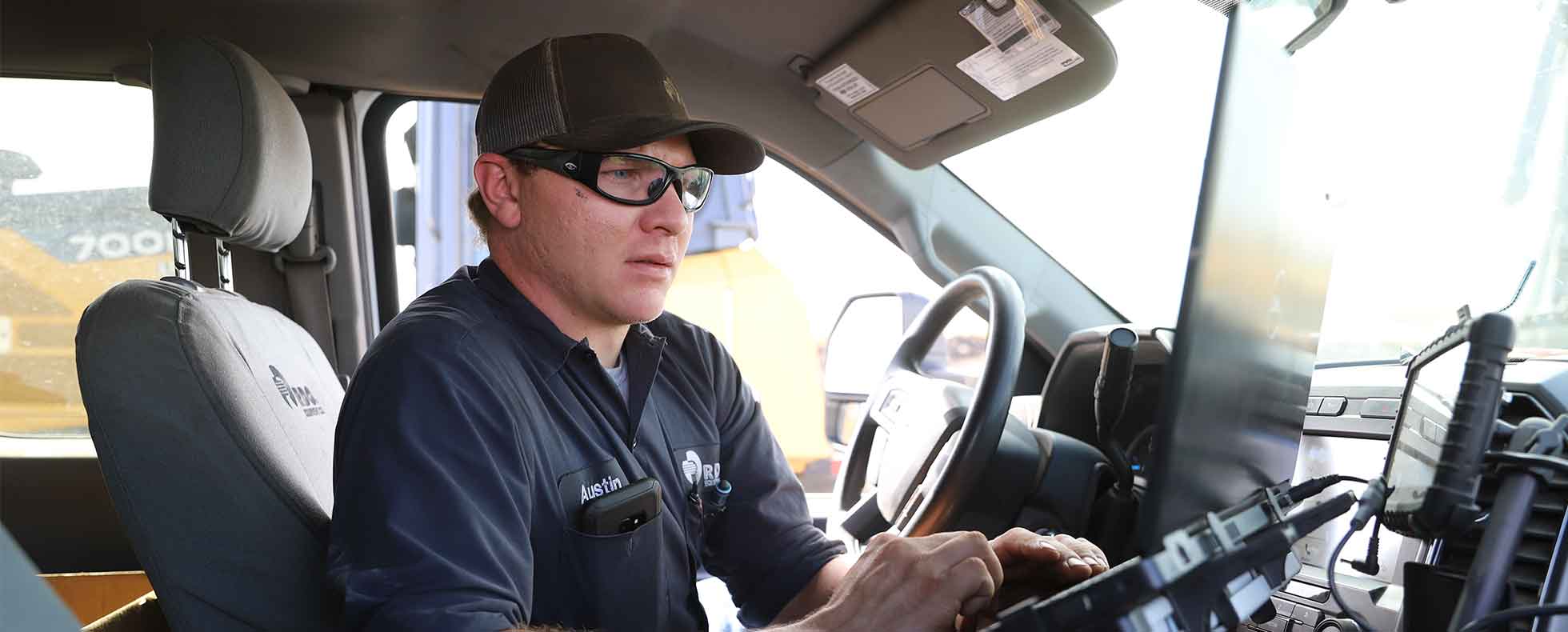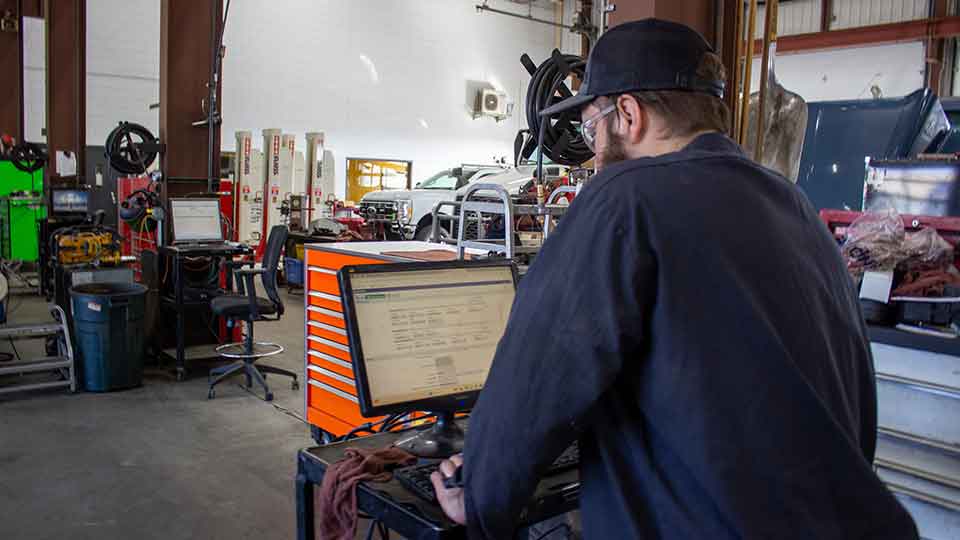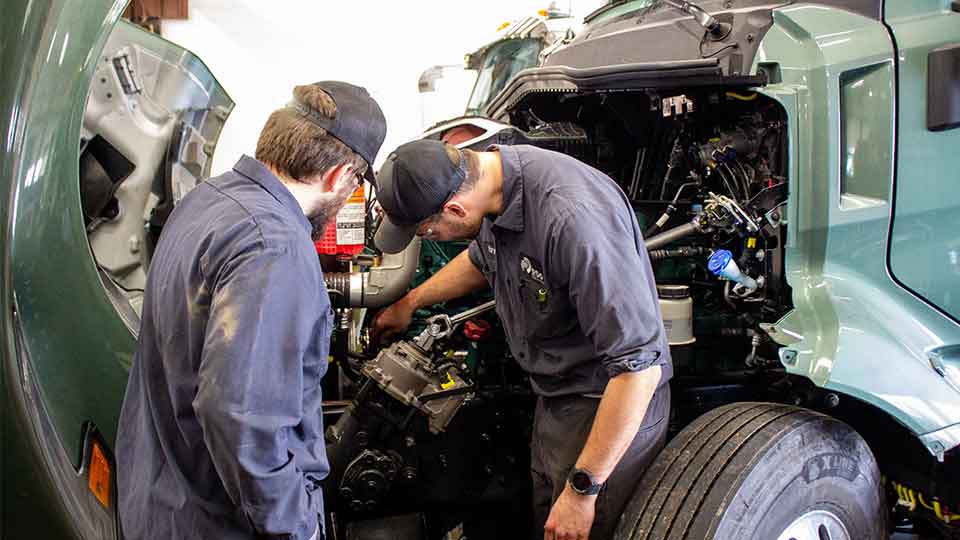
Over the years, you’ve built a good base of skills and experiences.
As you’ve developed, you’ve made an impact on your organization. You have refined mechanical skills and a history of efficient, effective service.
Now you’re looking for a new job, and aren’t sure how to put all of your skills and experience into a well-crafted resume to help you land a new role.
Sound familiar?
As a diesel technician on the job hunt, you’re not alone if you’re unsure what to do about your resume.
It’s common for people in all professions to look for help crafting an effective resume.
Since January 2024, RDO Equipment Co. has hired more than 400 technicians and processed over 9,000 applications for these roles. So we’ve seen quite a few resumes and know what makes them stand out.
In this article, we’ll give you some tips to help your resume stand out so you can build a great career at a company you like.
Note: We’ve listed these tips in the order in which many people place them on their resumes. You can structure yours however you see fit.
The first thing you should be sure to include — usually near the top of your resume — is your name and contact information. You don’t necessarily need to include your exact address, though a city, state and zip code helps.
Instead, you should include your email address and phone number.
It can also be a good idea to highlight the one you prefer to be contacted through.
Under your contact information, you have the opportunity to put a short overview.
This doesn’t have to be extensive. A short, two-to-three-sentence paragraph will do.
In your overview, you can include who you are, your goals, values and what you’ve done so far. This gives companies a good glimpse into you as a candidate.
Here’s an example of an overview you might find on a resume:
Experienced diesel technician with over five years of expertise in diagnosing, repairing, and maintaining diesel engines and hydraulic systems. Proficient in preventive maintenance, electrical systems, and fuel injection repairs, ensuring optimal vehicle performance and reliability.
An easy way to write yours is to pull some highlights from the rest of your resume (your main skills, years of experience, certifications, etc.).
As a technician, formal education won’t necessarily make or break your career, though it helps round out your knowledge and get your foot in the door.
Technical, associate's and even bachelor's degrees are especially desirable for technicians who are younger in their careers. If you have a degree, put it near the top of your resume.
This signifies that you can commit to achieving these degrees and have the skillset required to achieve them.
Also, list any relevant certifications you have. This could be capstones you’ve achieved or manufacturer training you’ve completed. These certifications are desired by employers (especially if they’re for the products you’d be working on).

This should make up the bulk of your resume. The idea here is to use this section to provide an overview of what you’ve been up to throughout your career.
In terms of formatting, include your job title, the name of the company you worked for, and your employment dates to frame it up for companies.
Under these headings, include 5-8 bullet points outlining what you were responsible for during your time there.
Try to customize this section to the job you’re applying for. Since you’ll be applying to a role working on diesel-powered or heavy equipment, if you have extensive work experience, you should only include other mechanic experience.
That might mean leaving out general construction experience or that stint you did working in an office. If you have fewer work experiences and these jobs help show your skillset, by all means, include them.
Your resume is a great place to brag about yourself as a technician. Use this as an opportunity to sell yourself by listing your skills. This should include both soft and hard skills, but make sure they’re relevant to the job you’re applying for.
Here are examples of soft skills you might include:
Here are examples of hard skills you might include:
Listing 5-10 highly relevant soft and hard skills can help you stand out from other technicians. These help employers grasp whether you have the skills for the job.
An effective way to make your resume stand out is to add numbers to your work experience at each position. This helps quantify your impact and add some context to what you did in the role and your contributions.
Here are a few examples of how this could look:
If you don’t have hard numbers, don’t make them up. But if you do have a couple you’re proud of, these can go a long way toward catching an employer's eye.
We touched on this a little in the sections above. It's a good idea to tailor your resume to the job you’re applying for, especially if it's highly competitive.
This means reading through the entire job description, evaluating the duties/responsibilities and determining the qualifications the company is seeking.
With this information, consider the wording you use in your overview, skills and work history sections. Try to identify areas where you can add keywords that reflect the job description. This is a good way to stand out from the noise.
Some application tracking systems look for these keywords in the submitted resumes, especially when the roles are highly competitive.
Finally, when you’re working on developing your resume, consider length. There is something of an art to this.
You don’t want it to be too long or too short.
The sweet spot for your resume, including optional fields, like the overview section, is 1-2 pages total. If you have more than this, try to trim it down to the most relevant positions you’ve held and 5-8 bullet points under them.

As a technician, your job is vital. You keep your industry moving— whether in trucking, transportation, construction, agriculture or another field.
You deserve to have a position where you feel valued for the work you and fulfilled at the end of each day.
Having a well-crafted resume is a great way to do just that.
An excellent technician resume can have several looks. However, it often includes a skills section and a rundown of your education and certifications.
Keep it concise but not overly short. If you have a chance, add an overview section, and remember to include your email and phone number.
Once you have a great resume locked and loaded, find a job or two in your area that interests you.
When you hear back for an interview, your next step is simple (kind of) — ace it.
Here are eight tips for preparing for your next interview.
Looking for a role at RDO?
Learn more about our service technician careers and find an opening in your area.